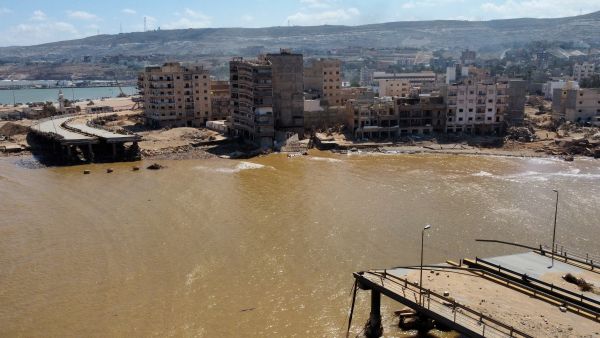ALBAWABA - An International report said that the catastrophe Storm Daniel bestowed on Derna, Libya constituted a climate and environmental catastrophe that requires $1.8 billion in reconstruction and recovery.
Storm Daniel has left the Libyan city of Derna in shambles with more than 4,000 people dead and thousands injured, causing two major dams across the city to completely collapse and sweep the city out to the Mediterranean.
According to the World Bank, United Nations, and European Union report, the disaster affected approximately 1.5 million people or 22% of Libya's population, and the UN humanitarian agency OCHA reported 4,352 confirmed deaths with 8,000 still missing.
The report stated that the dams collapsed due to their design, which was based on outdated hydrological data, as well as poor maintenance and governance during Libya's conflict.
Population growth and development downstream, limited weather forecasting in the region, and insufficient early warning systems to ensure evacuation all contributed to the disaster, according to the report. Climate change increased the likelihood and intensity of Storm Daniel's rainfall by up to 50 times.
Physical damages and losses caused by Storm Daniel flooding in Derna and other cities totaled $1.65 billion, or about 3.6 percent of oil-rich Libya's GDP in 2022, according to estimates.
The flooding destroyed or damaged more than 18,500 houses, accounting for 7% of Libya's housing stock, displacing nearly 44,800 people, including 16,000 children, the report added.
It stated that the "limited accountability and capacity" of Libyan institutions posed "a key challenge to recovery processes," while weak coordination between rival authorities was expected to impede the government's ability to "channel, manage, disburse, and monitor" recovery funds.
Despite UN calls for Libya's ruling factions to put aside their differences and develop a coordinated response to the Derna disaster, there has been little evidence that they are willing to do so.









